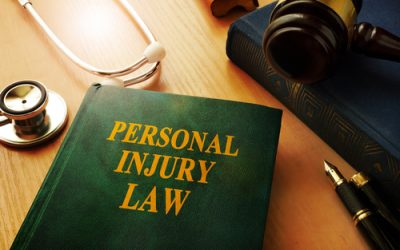
Vertigo—a feeling like the room is spinning—is not unusual after a car accident. It may be caused by a whiplash injury, a concussion, or another type of injury. Sometimes, vertigo is a sign of a serious condition that needs immediate medical attention. Always see a doctor if you are experiencing vertigo after an accident.
Dizziness and vertigo usually mean that your car accident has injured your neck or head. The impact from an accident may force your neck and head to move suddenly back and forth, damaging your spinal bones, neck muscles and ligaments, inner ear or blood vessels. You may also injure your head by hitting it on the inside of the car. Vertigo puts you at greater risk of falling and hurting yourself further.
What causes vertigo?
Vertigo isn’t an injury by itself, but it is a symptom of an injury. There are several types of injuries that can lead to vertigo, and it is important to know which one is causing your symptoms because that will determine the right treatment for you. Here are some of the most common causes of vertigo:
- Whiplash. Rear end collisions and other types of car accidents can cause your head and neck to “whip” violently back and forth. This sudden motion may damage muscles and tendons, spinal vertebrae, or the discs between them, causing neck and shoulder pain. A whiplash injury can disrupt the nerves in your spinal column that send the brain signals on how to control your posture. This leads to vertigo, which usually goes away after the whiplash is treated.
- BPPV, or benign paroxysmal positional vertigo. A car accident can jar the crystals in your inner ear. These crystals connect to nerve endings that tell your brain what position your head is in. When the crystals are out of place, you feel dizzy. With BPPV, the vertigo usually gets worse if you move your head in a certain way. BPPV is often treated with a series of head maneuvers.
- Blood vessel damage. If you have blood vessel damage, your brain may not be getting as much blood as it should. You may feel an aching or throbbing pain in the back of your head that gets stronger over time. This can be extremely serious and you should get emergency treatment.
- Concussions and traumatic brain injuries.A violent impact or hitting your head on something inside the car can cause a brain injury. Brain injuries can cause dizziness, confusion, memory loss and other symptoms. Minor injuries may go away on their own, but a traumatic brain injury may need extensive treatment and alter your life.
What should I do if I have vertigo?
Because vertigo has many potential causes, the best thing you can do is to go to the doctor as soon as you can. Your doctor may perform tests to diagnose your injury and rule out more serious conditions. While you are at home, there are a few simple steps you can take to help you function better and reduce your risk of falling and injuring yourself even more:
- Realize that you are at a risk of losing your balance and falling. Take care on stairs, and use a cane if needed for additional stability
- If you feel dizzy, sit down right away
- Avoid driving, bicycling, running, or other activities that put you at increased risk of an accident
- Use good lighting if you need to get up during the night
In addition, one of the best ways to take care of yourself after any accident is to talk to a car accident attorney in Atlanta. A lawyer can help you recover money to pay for your medical care, the time you’ve lost from work, and more. In Georgia, the law allows you to recover 100% of the costs of your accident from the driver who caused it. A lawyer can help you get the maximum amount possible, with as little stress as possible.
Talk to an Atlanta Car Accident Lawyer for Free
Our lawyers have a long track record of helping people with vertigo and other car accident injuries get the money they deserve. We won’t charge you a dime unless we win money for you. Let us give you a free, no-obligation consultation and show you what we can do for you. Call us at (404) 341-6555 or fill out the form to the right to get your free consultation today.




